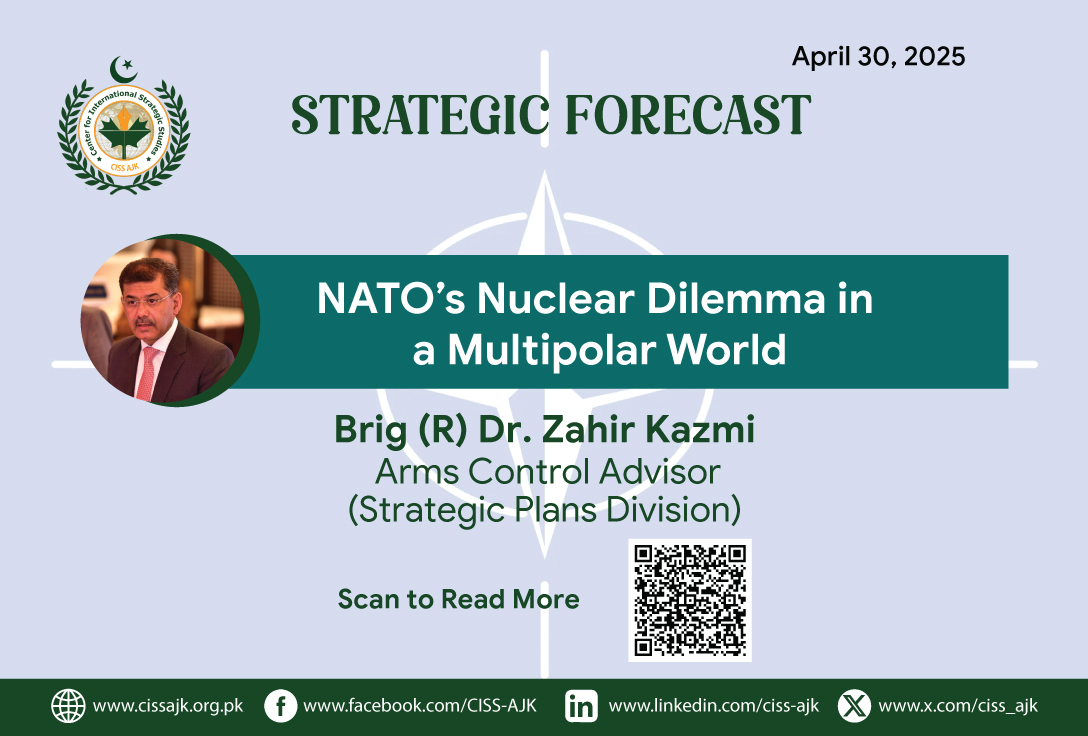As NATO absorbs the implications of a second Trump presidency, a consequential debate is brewing within its ranks: Can Europe rely on U.S. nuclear guarantees forever, or is the time nearing for an autonomous deterrent?
France’s President Emmanuel Macron thinks the question is overdue. Early this year, he reopened consultations about extending France’s nuclear umbrella to willing European partners—a proposal that’s since triggered historic interest from Germany, Poland, and the Baltic states. The UK, with its U.S.-linked nuclear arsenal, seems hesitant to co-lead, especially in a post-Brexit landscape. Still, a paradigm shift is underway.
While discussions are nascent, the stakes are enormous. If this European nuclear initiative remains embedded within NATO’s structure, it could strengthen transatlantic deterrence. But if it evolves into a parallel posture, NATO may face a fragmentation crisis at a time when it can least afford it. Recent weeks have only made the dilemma sharper.
The article I just published with France’s Foundation for Strategic Research explores these dynamics in detail. But recent developments — like nuclear signalling through Belarus — add fresh urgency. The nuclear balance is shifting fast, and NATO has yet to articulate a unified response.
A Strategic Fog Descends
The Ukraine conflict has exposed NATO’s conventional limitations and doctrinal uncertainty. Russia, too, has shown restraint. Despite forward-deploying tactical nuclear weapons to Belarus and facing battlefield setbacks, Moscow has not crossed the nuclear threshold—even after Kyiv’s use of long-range missiles from the United States and the United Kingdom. These developments test the resilience of deterrence under ambiguous thresholds. Meanwhile, Washington’s current hesitations on advanced arms transfers to Ukraine—first with ATACMs, now rumoured with F-16s—underscore strategic ambiguity rather than cohesion.
For Eastern European allies, this uncertainty is existential. Germany’s political class, long restrained by its historical aversion to nuclear entanglement, is now openly discussing Franco-British options. In a notable statement, Friedrich Merz, Germany’s chancellor-in-waiting, called for nuclear protection “beyond the United States.”
Poland has gone further. Prime Minister Donald Tusk recently warned that “strategic hedging must be part of our new reality,” hinting at potential national deterrent planning if U.S. commitments further erode.
The Macron Moment
Macron’s initiative is bold, but far from a done deal. France’s force de frappe is doctrinally independent, not integrated with NATO’s nuclear planning. Paris maintains sovereign launch authority, and its arsenal—while credible—is dwarfed by U.S. or Russian stockpiles. Joining NATO’s Nuclear Planning Group, even as an observer, would require France to relinquish layers of its Gaullist legacy. Yet, symbolic moves—forward-deploying Rafales or expanding joint exercises—could signal greater European nuclear unity without massive rearmament.
This is the hedging Europe now practices: spending more on defense (the EU’s €500 billion joint capability fund is one example), while resisting Washington’s pressure for a formal 5% GDP target. The divergence is not just fiscal—it’s strategic.
UK’s Cautious Alignment
Britain remains cautious. Its nuclear deterrent is credible but semi-autonomous, dependent on U.S. Trident missile systems. London has consistently aligned with NATO, not European defense autonomy. However, with U.S.-UK political ties showing strain—especially around Indo-Pacific priorities—London may find itself needing to recalibrate. For now, it prefers to reaffirm transatlantic unity, but cracks are beginning to show.
What If Europe Goes It Alone?
If Europe pursues a joint nuclear initiative, several questions remain. Would France and the UK co-lead in doctrine, force posture, and escalation strategy? Would Berlin join planning but stop short of basing rights? And most critically, would such an architecture complement NATO—or compete with it?
Some analysts argue for a dual-pillar model: a European deterrent within NATO, but also capable of acting independently if the U.S. retrenches. Others warn of doctrinal duplication, strategic drift, and weakening of NATO’s political core.
Global Signals and Strategic Precedents
NATO’s choices matter well beyond the Atlantic. In the Indo-Pacific, Japan and South Korea are watching carefully. Beijing, for its part, views NATO’s growing engagement with Asian partners — and its subtle pivot to the Pacific — as a creeping containment strategy. The creation of AUKUS and recent joint naval drills with Japan only reinforce this perception.
If NATO fragments or evolves into regional blocs, it will send troubling signals across the Global South: that nuclear dependence is unstable, and that hedging — or even proliferation — may be rational. The post-Ukraine world is already more sceptical of disarmament promises. A fractured NATO would only deepen that cynicism.
Toward Credible Cohesion
The question isn’t just who owns the warheads. It’s about who writes the doctrine, who leads in crisis, and who assures allies under stress. Macron’s proposal, though intentionally ambiguous, may be the beginning of a necessary reckoning: Can NATO remain a cohesive nuclear alliance in a multipolar world? Or will ambiguity calcify into strategic drift?
As extended deterrence grows more uncertain, Europe faces a hard choice: reinforce integration or risk fragmentation. Strategic clarity—on doctrine, escalation, and leadership—will determine whether NATO adapts or drifts apart in the emerging nuclear order.
Author Note:
A longer research version of this piece, “NATO’s Nuclear Crossroads: Strategic Autonomy or Fragmented Deterrence – A Non-Western Lens,” was published by the Foundation for Strategic Research (Paris) and is available here.

